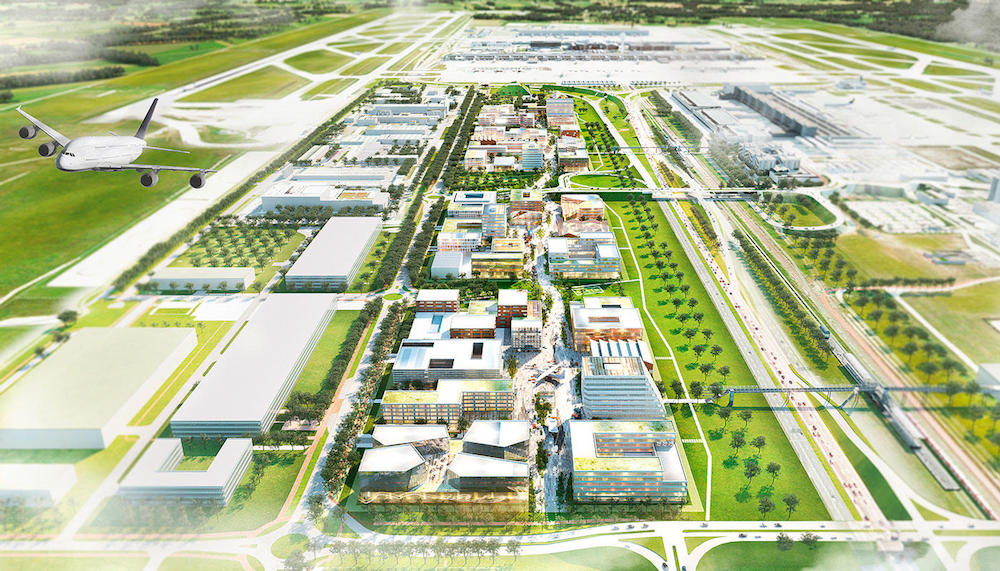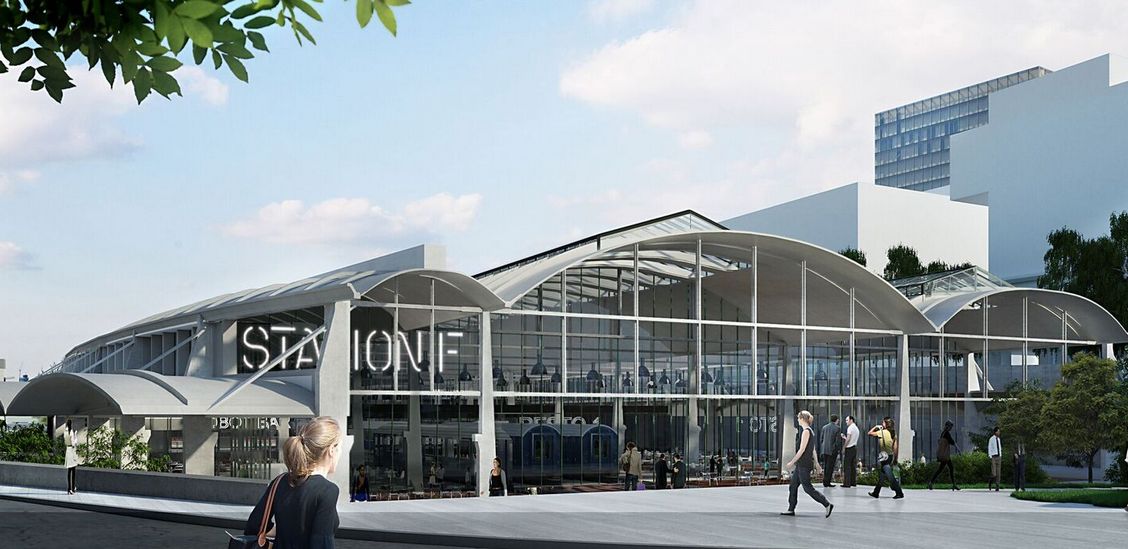Though innovation can (theoretically) spring sui generis from nothing like Athena from the head of Zeus, that’s certainly the exception, not the rule in tech.
What’s incredible is that Europe has produced the innovative companies and unicorns it has without what we like to call “The Valley Model” – a great university, a foundation of advanced businesses that have grown over decades; an abundance of talent drawn by that university and those businesses and finally, sufficient venture capital.
The systemic weakness in Europe has been lack of early stage capital. Funding remains anemic. In 2017, VC firms invested $19.1 billion in Europe, up about 33 percent from 2016. Which is great, right? But compare that to the $84 billion VC firms in the United States invested the same year.
That’s changing with investors such as Xavier Niel in Paris, Niklas Zennstrom in Stockholm and Oliver Samwer in Berlin. And money is starting to pour in from the U.S. and Asia, especially China. But building ecosystems takes time and focus.
Silicon Valley evolved over 80 years, beginning life as an aerospace industry center when zeppelins were high-tech. Then came the transistor, William Shockley, Fairchild Semiconductor, Robert Noyce, Gordon Moore and Intel, Hewlett-Packard, the University of Stanford’s Arpanet research, Kleiner Perkins, the Internet, Xerox’s Parc Lab, Apple, and Google, though not necessarily in that order. But you get the idea … the technology and talent kept building and expanding from one generation to the next.
In Europe, the model is completely different. While most advanced European countries have superior education systems that produce incredible talent, careers and pensions here have always been more seductive than entrepreneurship. The European tech centers long lauded as “The Next Silicon Valley” such as Berlin have had notably few successes, and the number of Unicorns is amazingly low considering the talent and the size of the market.
We have two good reasons all that is about to change:
1 – Brexit will send much of London’s management and tech talent, as well as early stage investors, to cities where they can still do business with the European Union.
2 – The United States is less welcoming to global talent as the Trump Administration grows more isolationist, blocking Muslims and rupturing its relationships with European allies in favor of Russia and other authoritarian states.
For the second year in a row, the number of H-1B applications dropped, because there are more options for highly skilled internationals. As we’ve advocated before, this is Europe’s moment to reach out to those talented people no longer welcome in the U.S. The number of people receiving visas to move permanently to the U.S. is on pace to drop 12 percent in Trump’s first two years in office, according to a Washington Post analysis.
In the end, there’s one absolute: Capitalism remakes the world in its own image, and Europe will have its breakout moment. The question really is, “Where will it start?”
So, we drew up a list of the cities where we think expats could get in ground-level (which is where the most money is to be made) in the Next Great Global Tech Center.
(Editor’s note: For our first “Best Cities for Expats” list, we focused on affordability. With this list, we’re looking strictly at innovation potential, because if you take a position there, odds are it’s going to be well paid.
No. 5 – Lisbon
Sometimes, a city’s fortunes can change literally overnight.
In 2016, Lisbon stole Web Summit from Dublin. From that time on, the trajectory has been straight up for this city on the Atlantic. Even before that, Lisbon’s fortunes were changing from its Great Recession lows. In 2015, Lisbon became the first city to receive the European Entrepreneurial Region award. Investors from across Europe have discovered Lisbon, its (for now) low rents and increasingly in-demand IT talent.
As we reported in April, Lisbon officials are planning to build Beato Creative Hub, serving notice to Paris and Station F that Portugal is the future of digital Europe.
Hub Criativo Beato is almost the same size – 35,000 meters square – as Station F. But the Portuguese plan to punch it out to 100,000 meters square, or 1.1 million square feet, spread out among 20 buildings. Tenants include Mercedes-Benz. (Check out the job interview video above!)
Earlier this year, Google announced it would build a tech center in Lisbon, with 500 jobs, similar to its hub in – you guessed it – Dublin.
Now the whole country is rebranding itself as “the California of Europe.”
HOW LISBON COMPARES TO THE VALLEY MODEL
Universities – University of Lisbon
Foundational businesses: Not much in the way of the old-line companies that spin out new tech. But every major tech player has ops in Lisbon including Google, Uber, Zalando and Huawei.
Talent: Not nearly as much as the cities higher on this list because it lacks foundational companies. But Lisbon is attracting talent quickly.
Capital: Since 2010, 40 startups have raised more than $1 million from VCs. Even the World Economic Forum is singling Lisbon out for becoming an innovation center.
Number of Unicorns: Zero
Major digital successes: Codacy. But more if you count the companies started by Portuguese entrepreneurs such as José Neves including Seedrs and Farfetch. About half of Neves’s 1,000-person Farfetch staff work in Lisbon, with the rest in London. But as we said, that could change ….
News update: Wired magazine has a post about Lisbon’s hottest startups. From the post:
“Young Portuguese graduates are choosing to stay here, and highly qualified workers are coming in from abroad,” says Clara Armand-Delille, who moved from London to found PR agency ThirdEyeMedia. “Today, Portugal is a startup nation,” Costa says.
No. 4 – Paris
There are two reasons “Paris” and “startup and tech center” in the same sentence isn’t a joke – Xavier Niel and Emmanuel Macron.
Let’s start with Macron, France’s investment banker-turned-president. Macron has vowed to make France “the country of Unicorns. To make that happen, he’s taking on the unions and bureaucracy to make France more entrepreneur-friendly … and to get people to work more than 35 hours per week. (Here’s where we quote President George W. Bush, who so famously noted, “The problem with the French is, they don’t even have a word for entrepreneur.”)
Niel is the telecom billionaire who’s used mostly his own money (250 million euros) to open Station F, the largest startup hub in Europe. A year in, more than 1,000 companies have arrived at Station F including Google. Luxury goods giant LVMH also has started a high-profile accelerator there.
A seminal moment in the creation of a “new Paris” was when Tony Fadell, creator of Apple’s iPod and iPhone, left The Valley and moved to Paris in 2016, where he has his investment firm at Station F.
The Macron/Niel approach seems to be working. France’s VCs raised about 2.7 billion euros last year, overtaking the UK’s 2.4 billion, which made headlines across Europe. But the issue that kept it from the No. 1 ranking on this list is, “How many startup teams can afford to live in Paris?”
HOW PARIS COMPARES TO THE VALLEY MODEL
Universities – L’École Polytechnique, l’École des Mines and l’École Centrale all crank out superior engineering talent.
Foundational businesses: Some of the world’s largest consumer and luxury companies are based in Paris including LVMH. Paris has a number of old-line tech companies including Capgemini.
Talent: Most of the largest companies in the world have operations in Paris, and the talent pool is as deep as any place in Europe with the exception of Munich and London.
Capital: Xavier Niel, Tony Fadell and others have started venture funds.
Number of Unicorns: Several including Blablacar.
News update: Europe’s top financial websites are posting that Paris is “set to triumph” as the post-Brexit center for financial traders.
No. 3 – Eindhoven
We could literally fill a book about Eindhoven with everything we’ve written since 2015. Yet Eindhoven remains a bit of a puzzle – it has the most sophisticated tech companies in the world such as ASML, which is in every way comparable to Silicon Valley stalwarts such as Intel, but a nascent tech startup community.
The reason is, most of Eindhoven’s foundational tech companies were spun out of Philips.
There are few entrepreneurs in the style of Jobs, Page and Brin or Zuck. Still, the ecosystem is attracting fresh talent every day … and it’s growing.
High Tech Campus Eindhoven officials announced this week that High Tech Plaza will go from one building currently to three.
The new complex will pull together startups, scale-ups and supporting companies in one startup hub on the way to becoming – dare we say it? – the smartest square kilometer on earth (not just Europe).
Here are the details on High Tech Plaza:
-
- 3 Buildings – 1 startup hub; One building to start, one to scale and one to (get) support;
- More than 10.000 m2 of offices & labs;
- An all-inclusive concept;
- Shared facilities;
- An events space with events based on startups’ demands;
- Extended business networks
From the High Tech Campus release:
High Tech Plaza – Start
The Start building (HTC 12) is the place in High Tech Plaza for companies in the earliest stage. It is all about easy access to the ecosystem. Formerly known as HighTechXL Plaza, this building was the start of the startup hub and contains office spaces, meeting rooms and shared event space.
High Tech Plaza – Support
The Support building (HTC 27) in the High Tech Plaza concept is a place where organizations that support startups connect. It is home to companies including accelerator program HighTechXL, patent specialists, venture capitalists and other investors. It is also the place where all High Tech Plaza members can host small-scale events and where tech enablers and startups can work on a flexible basis.
High Tech Plaza – Scale
The Scale building (HTC 29) provides a place for growing startups. Here, bigger offices and lab spaces are available. This building also houses the labs and cleanrooms of iconic Campus residents such as Holst Centre, TNO, Teledyne Dalsa and SMART Photonics. In the Scale building, you’re part of the technological heart of the Campus.
The three buildings are adjacent to each other and will open to all members of the Plaza concept as soon as September. Is it Station F? No, but a multi-building hub with expanded support might be a deciding factor for promising startups trying to decide between, say, Amsterdam and Eindhoven.
We can also tell you a new type of entrepreneur is showing up including John Pellew, who opened operations for his new blockchain startup, Othera, in Eindhoven. Pellew, an Australian, is, as they say, a serial entrepreneur, starting several financial companies. Also, Jeroen Wijering with JW Player has come back from New York and The Valley after writing the early code for YouTube.
But Eindhoven’s biggest strength is the fact local leadership knows they have to aggressively pursue highly skilled internationals while also building the infrastructure to house them. The Dutch are, if nothing else, methodical and detail-oriented.
HOW EINDHOVEN COMPARES BASED ON THE VALLEY MODEL
University: More than one. Eindhoven draws on multiple Dutch and Belgian universities for its talent including Technical University of Eindhoven, Technical University of Delft and others.
Foundational businesses – ASML, NXP, Philips and VDL. Most advanced companies including ASML, NXP and Shapeways were spun out of Philips, a 127-year-old electronics company – the General Electric of Europe – now based in Amsterdam.
Talent: ASML, which makes the machines that make the semiconductor business possible, alone hires about 250 people per month, many – if not most – from outside the Netherlands.
Capital: Uhm, the Dutch here, unlike entrepreneurs in Amsterdam and Rotterdam, are addicted to subsidies from the Dutch government.
Number of Unicorns: zero
Companies going public or acquired: Liquivista and Sapiens were both sold several years ago to American companies for premium prices, Liquivista to Amazon and Sapiens to Medtronic.
News update: Eindhoven just hosted the Netherlands’ first China investment event.

No. 2 – Munich
This is Germany’s (and maybe Europe’s) most prosperous, multi-cultural and advanced city. Also, one of the most beautiful, nestled on the edge of the Alps in Southern Germany. In 2018, it derives its wealth from insurance (Allianz) and cars (BMW). But increasingly, Munich is going digital.
(We’d like to point out that Munich and Frankfurt, not Berlin, are Germany’s economic drivers along with Hamburg and Düsseldorf.)
Munich has a new project that could be a game changer.
A few months ago, Bavarian officials announced LabCampus at Munich Airport. Basically, the idea is to leverage the airport (one of Europe’s best) in the quest to fuse startup magic with Munich’s already world-class tech and management resources.
LabCampus will be a “future-focused campus.” What does that mean? Not sure.
But this is from the news release:
The visionary project will foster cooperation between companies and industries by bringing together leading experts, companies – from start-ups to global players, creative minds and investors – at the heart of a thriving transportation hub with links to over 260 destinations worldwide and plenty of room for real estate development.
That last part is important … so many Europeans cities have nowhere to expand.
We’re also seeing old-line companies add their own tech accelerators such as BMW’s Startup Garage, accelerators that are essentially partnerships with startups who can do stuff they can’t do as the whole concept of personal transportation changes.
DOES MUNICH HAVE WHAT IT TAKES ACCORDING TO THE VALLEY MODEL?
University: Technical University of Munich
Foundational businesses: Too many to name, but if we did, they’d be BMW, Siemens and Allianz.
Talent: Yes, but mostly conventional engineering talent.
Capital: Munich has about 150 listed angel investors, though a significant percentage are U.S.-based. Munich also has LfA Förderbank Bayern and the European Investment Fund with 200 million euros to invest in small and medium-sized tech companies.
Number of Unicorns: Zero … so far.
News update: Lufthansa announced it will increasingly shift flights to Munich from Frankfurt.

No. 1 – Dublin
Dublin is already a booming tech center. But news last week makes it a sure bet to be one of the emerging global tech centers – news that Amazon is bringing 1,000 more Amazon Tech Services jobs to the city for a total of about 2,500 for the e-commerce/logistics/computer services giant alone.
The news about the news is that not all of Dublin is happy about this, and it underscores the divide – and the tensions – between highly paid internationals with tech skills and locals with no tech skills.
The Independent (the Irish version, not the British) reported that almost as soon as the jobs were announced, the complaints started on social media and talk shows.
“How is my son supposed to compete for an apartment with someone earning €70,000?” one radio caller asked. “He’s working in an ordinary job.” The worst thing about it, apparently, is that some of the highly paid new workers might be “foreigners.”
Vodafone and Avenade also announced new tech jobs at roughly the same time, adding to the anguish. But with Brexit, more jobs are coming and the concentration of tech, finance and digital talent will only increase. That’s a certainty.
Last year, Danish-born, Silicon Valley-based tech-based company Zendesk announced it was adding 300 people in Dublin. Dublin is HQ for the customer-relations software firm not only for Europe but for the Middle East and Africa as well. The truth is, every American tech company has a presence in Dublin, and change is coming faster than the Irish can cope.
But with every new arrival, it increases the likelihood some of these smart people will come together and start the first Dublin-based Unicorn, which is the idea.
The good news: Trinity College Dublin has a new incubator for health startups, the first of its kind in the Irish Republic. The incubator is open to health tech startups founded by professionals and researchers working in the medical and tech sector across Europe. Ten startups already signed include companies from Ireland, Germany, the Netherlands, Spain, Finland, Poland and Latvia.
Bad news: The problem is infrastructure – not enough housing in a city where bureaucracy slows development. Shades of Stockholm.
DOES DUBLIN HAVE WHAT IT TAKES IN THE VALLEY MODEL?
University: Trinity College Dublin
Foundational businesses: Guinness, though it’s now part of London-based Diageo. Google, Amazon, Apple, Oracle, Microsoft and others have operations here.
Talent: Lots, with more coming every day with U.S. companies expanding operations in Dublin, and London operations shift to the republic anticipating a hard Brexit.
Capital: Most of the investment capital is coming in from the U.S. and UK. Andreessen Horowitz is active, with John O’Farrell leading the charge. But O’Farrell is one among dozens of VCs investing in Dublin.
Number of Unicorns: zero
Success stories: CBT, which is now SmartForce, is one of Ireland’s rare indigenous digital success stories.
News update: Dublin’s soaring housing prices are starting to stabilize as supply increases.
A number of financial companies just announced Brexit related moves to Dublin or expansions there including emerging-markets fund Ashmore, First State Investments and Equilend.
HONORABLE MENTIONS
Rotterdam: We just went to PortXL’s demo day and the level of talent and ideas we saw there took us by surprise.
Tallinn: A lot of innovation starts here, but then it drifts off to Sweden and the Netherlands. Witness Skype and TransferWise.














